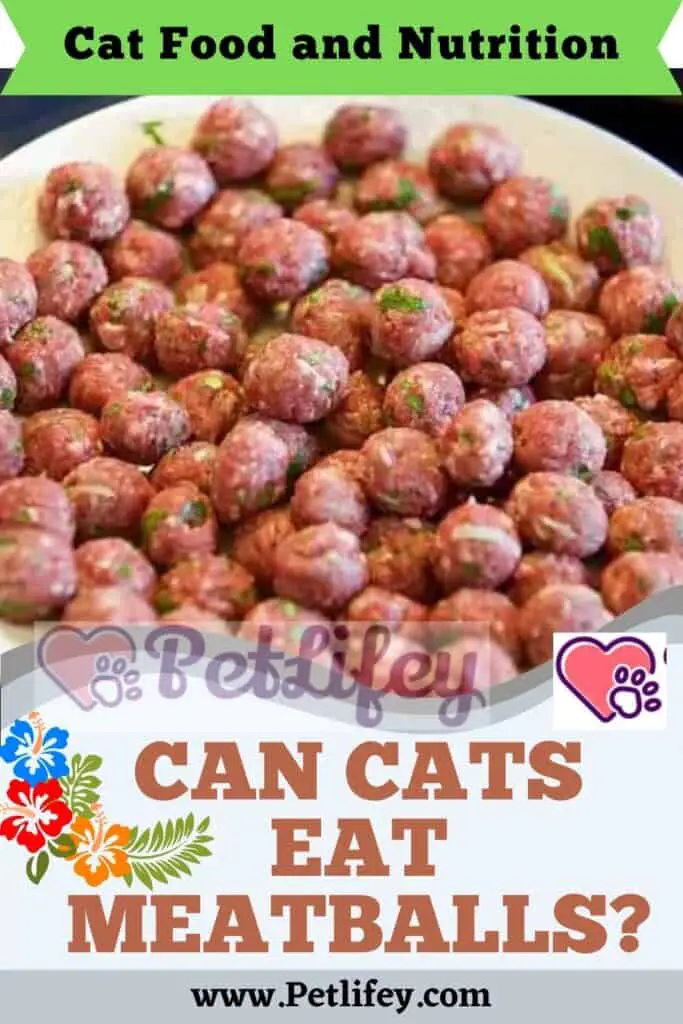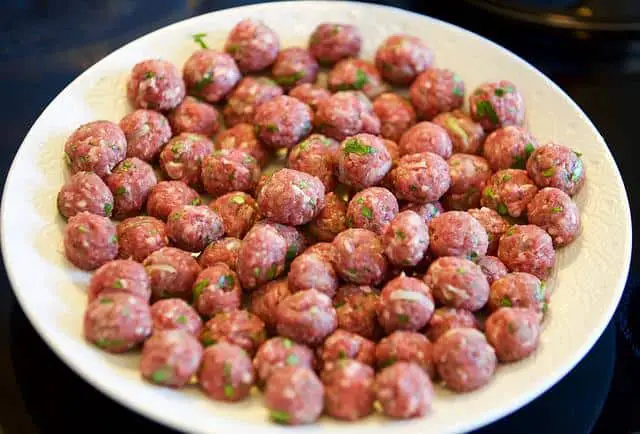
Who could refuse a plate of meatballs with tomato cooked by their grandmother? None of us, but can the cat eat them?
How many times does it happen that, while we are preparing beef meatballs with tomato sauce, our Kitty often peeps into the kitchen? Well, it is rare that we happen to disdain meatballs in sauce, the ones that our grandmother always made and that she made us taste before serving them at the table. Here, our cat does as we did with his grandmother: languid eye and sly look and he is there at the door waiting for the treat. How to blame him, but we would do well to give our Kitty a meatball?
Cat meatballs, is it a food to avoid?
Before being able to answer this question, it is appropriate to reiterate that not everything we eat should also be included in our cat’s diet.
First of all, speaking of meatballs, we are referring to a complex and not simple food: in reality a meatball is made up of several foods. It is necessary to analyze every ingredient contained in the grandmother’s recipe in order to be able to know if we would cause harm to our cat by giving him that food.
In most cases, meatballs do not lack:
- beef;
- egg;
- grated cheese;
- sale;
- stale bread or breadcrumbs;
- parsley;
- oil to fry them;
- wine to blend;
- garlic, onion, carrots, celery and tomato for the sauce.
Now, aside from the fact that they would all be cooked in the form of a meatball, are we sure that the cat can eat all of these foods? We know that meat is the basis of its diet because it is a carnivorous animal, so there would certainly be no problems with meat.
For the same reason, the cat can also eat eggs, obviously without exaggerating: they are a good source of protein, contained in the egg white, but also contain vitamins and minerals important to the cat’s metabolism such as zinc, calcium, phosphorus and potassium.
Cheese is also rich in nutrients and can be included in the cat’s diet, but with extreme parsimony both for its fat content and because the animal may be intolerant or allergic to it.
Taking into consideration both the oil for frying and the stale bread or breadcrumbs we enter the yellow area of the traffic light:
- Too many carbs are bad for cats. Its energy requirement derives almost entirely from the proteins of the meat and the accumulation of carbohydrates would cause difficulties in digestion: they would cause swelling and diarrhea, not to mention problems due to weight accumulation.
- The excessive consumption of fried foods would always affect his gastrointestinal system: the cat is unable to digest the fried oil and this leads to vomiting and diarrhea, up to toxicity problems.
Parsley is also part of the alert zone. It contains a large amount of oxalic acid, the constituent of kidney or bladder stones: an excess would cause kidney damage or worsen existing ones.
Foods in the red zone
Yes, we have found foods contained in grandma’s meatballs that cats just don’t have to eat.
Salty foods are banned for the cat. The use of salt, the classic NaCl or sodium chloride, favors the onset of renal failure and its accumulation would lead to symptoms of sodium poisoning in cats, primarily dehydration.
Garlic and onion are very toxic to cats. He may just appear tired but in reality he is developing anemia: paleness in the face and gums, vomiting and diarrhea are just some of the symptoms he will have. Of course, you will need to take him to the vet right away.
As for the tomato, the unripe one should certainly be avoided: green tomatoes contain large quantities of solanine.
This is an alkaloid contained in plants of the Solanaceae family that causes serious problems with the gastrointestinal system, but also tomatine and nicotine, which are even more toxic. Rarely, cats may eat red tomatoes but only after making sure they are not allergic to them.
For all the reasons we have seen, the cat cannot eat meatballs in sauce, even if they are the ones that grandmother always used to make.
Useful tips

Taking care of the cat that we have decided to let live at home with us means, first of all, worrying that it is well.
Of course, by well -being we also mean the psychological one but, whether it concerns the body or the mind, we must keep in mind that it always depends on us. We must not make the mistake of thinking that, if we did not give in to the coaxing he makes us, “the cat would be sick”.
Our Kitty is not able to get by in complicated reasoning. The thing is simpler: he smells food and wants it, period. But some foods are bad for cats.
Often those who own pets end up humanizing them. However, they have a very specific and different nature from ours, not to mention the dietary needs that we must take into account.
You should never think that, since it is something we eat, automatically it is also good for the cat because “what do you want me to make a meatball?”. In reality a meatball with sauce would make him feel bad and then, was it worth it?
Without considering, moreover, that sometimes a special diet is needed for cats with sensitive stomachs: all the more reason we cannot make mistakes and underestimate something that could be a risk or damage for our cat.
Any doubts we had, before daring to include a food in the cat’s diet, it is always good to consult your veterinarian.






